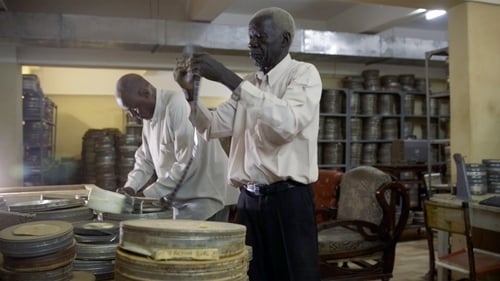
Editor
This film accompanies five children of the young ensemble of the Friedrichstadt-Palast during the creation of the new children's play from the castings to the rehearsals to the grand premiere evening in front of 2,000 spectators.

Editor
Benjamin and Awad run Sudan's national film archive. The two men, who have worked together for more than 40 years, are devoted to protecting their country's visual memories. Home to some 13,000 films, the archive preserves pivotal moments of Sudan's turbulent history and is one of the largest in Africa. But the archive is in a fragile state. Following years of neglect and poor storage, many film reels are turning to dust in Sudan's unforgiving tropical climate. The two friends are determined to turn it around and embark on a mission to save the old films. Will they succeed in preserving Sudan's visual history for future generations before it's too late?

Editor
Kathi is 30 years old, a single mother and a luckless actress who is regularly turned down at auditions. While Kathi doesn't know how to get her life on track, her mother Chris is a successful psychoanalyst. Chris doesn't take her daughter's career choices seriously, and constantly tries to give her good advice on everything. One day, Kathi's father suddenly appears after 15 years of absence and wants to reunite the family. Confronted with the past, Kathi gets the unexpected chance to address the ongoing conflict with her mother and to set new goals for her future.

Editor
Talented people like artists or writers who stayed have one choice only: work as seamstresses. Eriela, Beti and Vesna are seamstresses in the small town of Štip. If they wanted to afford one of their handmade blouses, it would cost them a months salary. While the women are fully employed, their men are less fortunate and find themselves unemployed after the collapse of communism. A situation with a lot of potential conflict for the couples. The men find it hard to be dependent financially on their women, when they used to proudly provide for the family.



